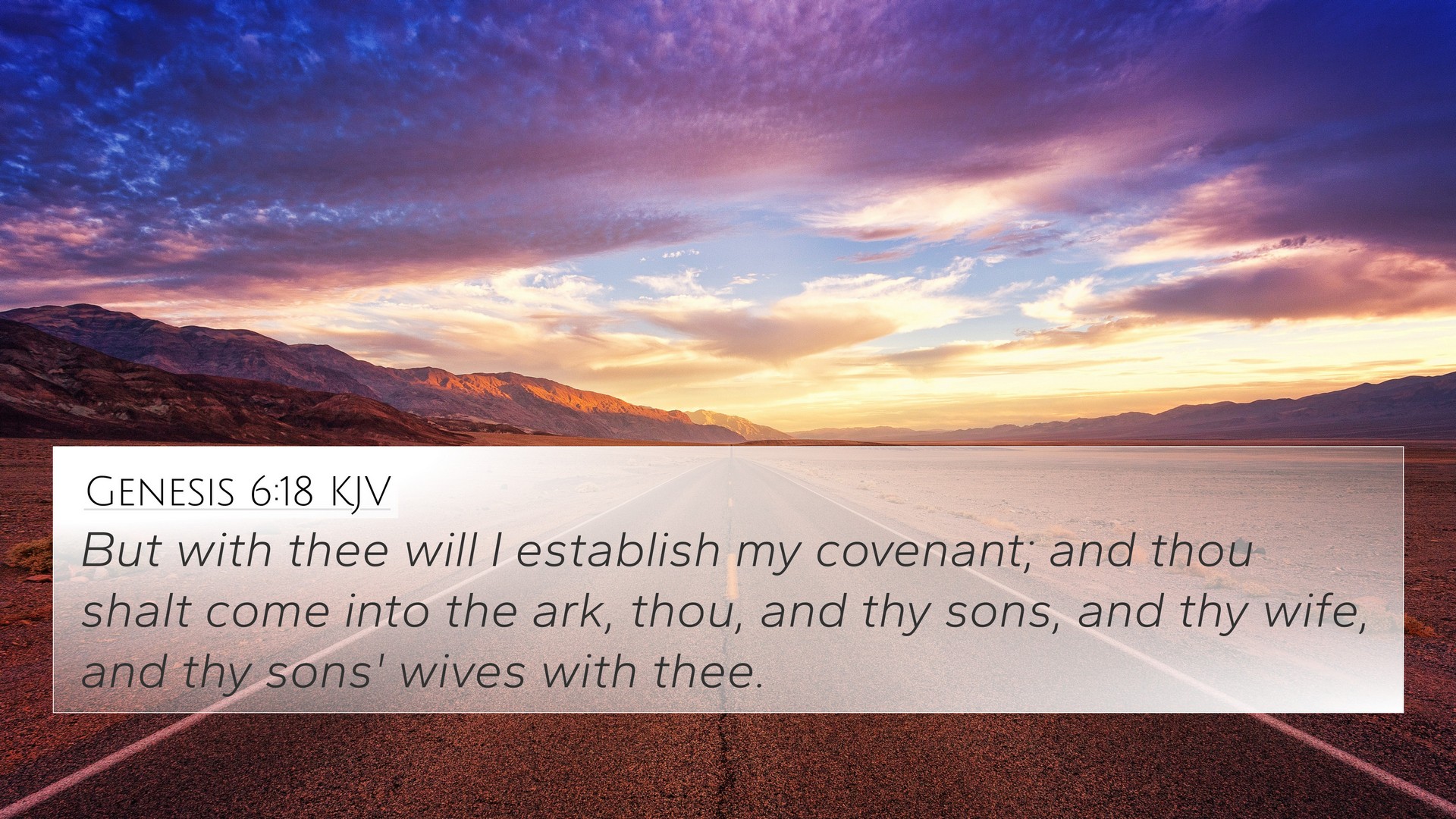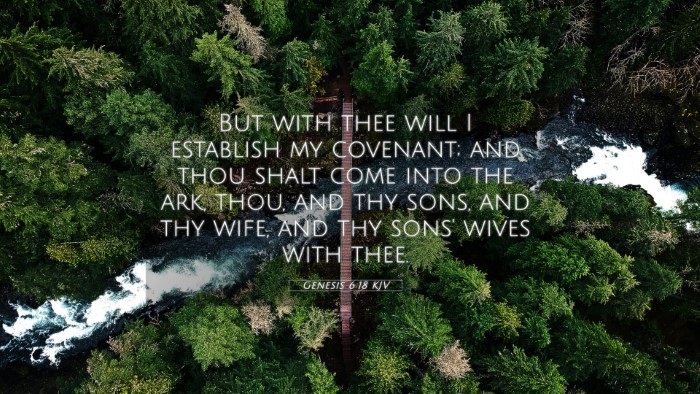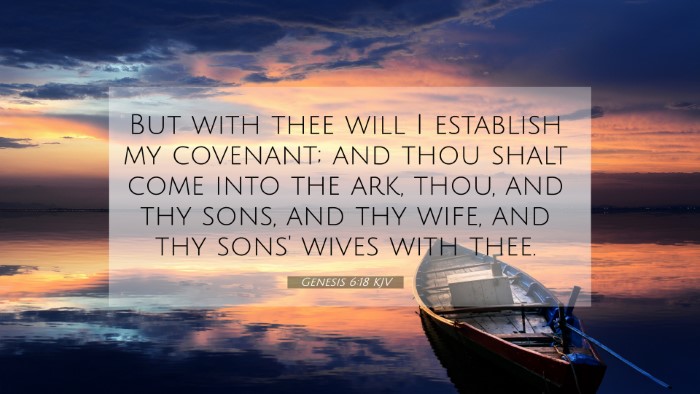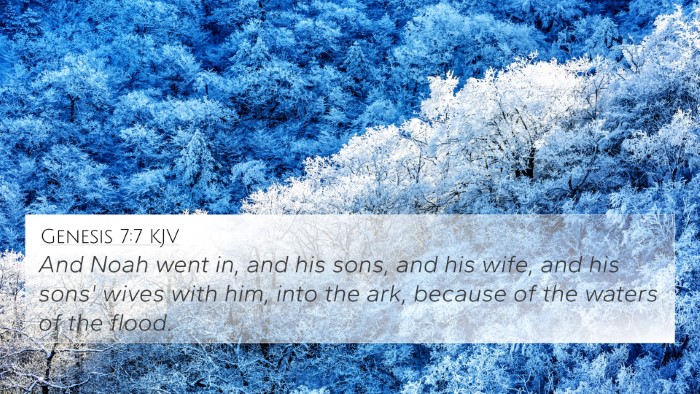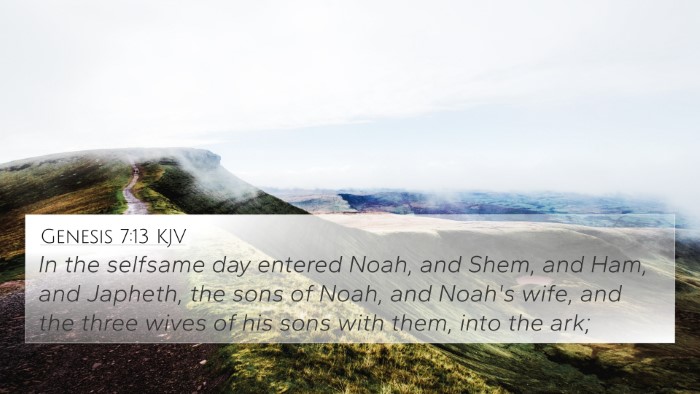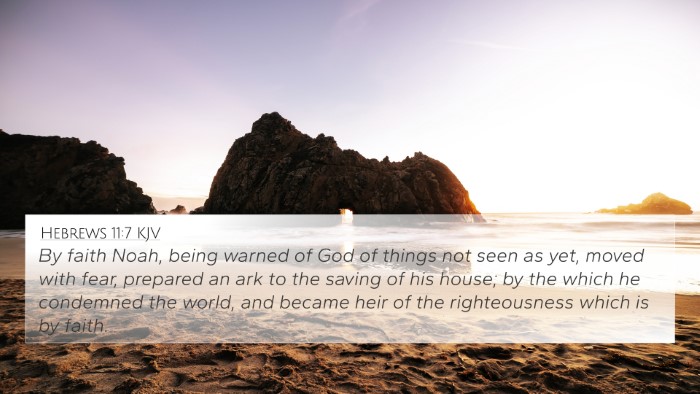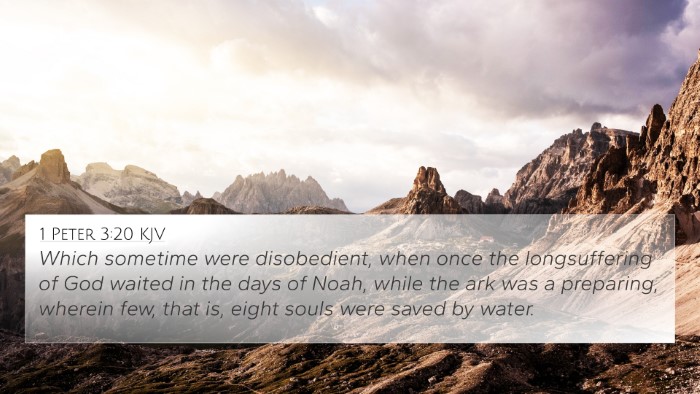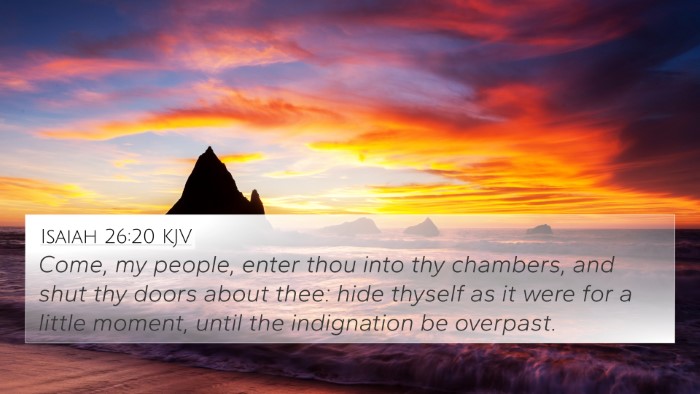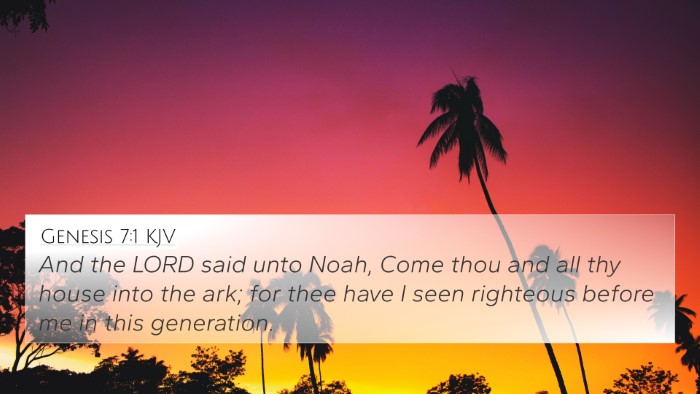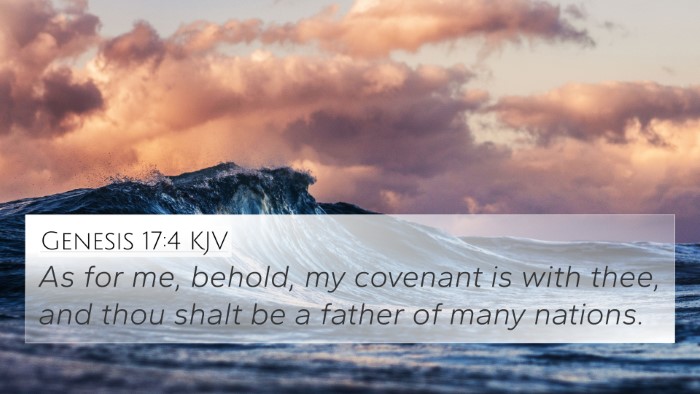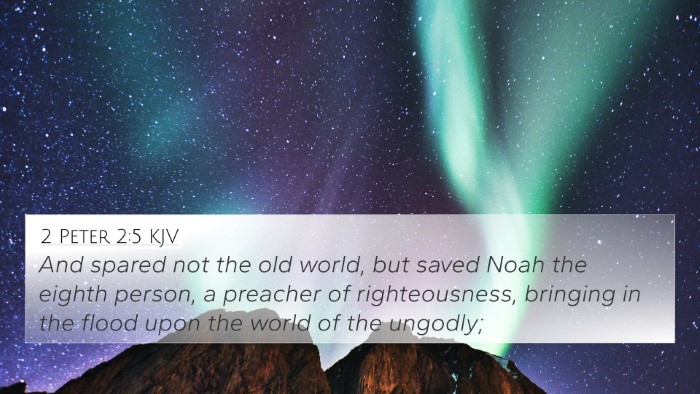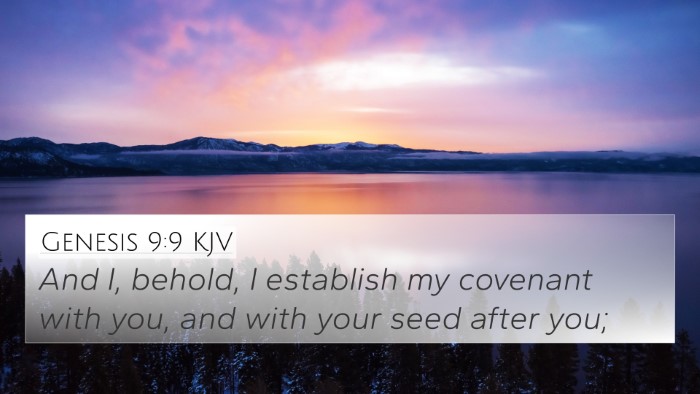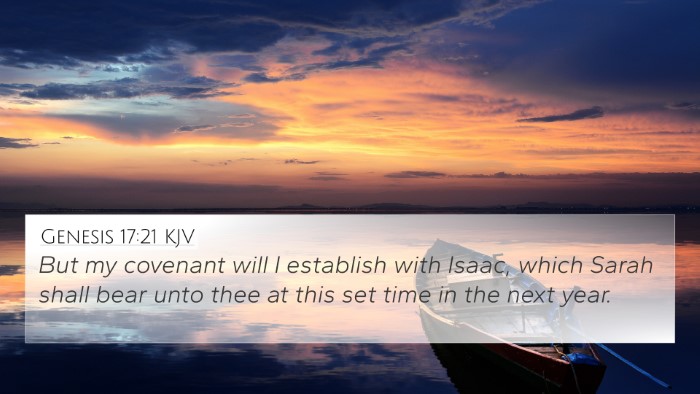Understanding Genesis 6:18
Genesis 6:18 states: "But I will establish my covenant with you, and you shall come into the ark, you, your sons, your wife, and your sons' wives with you." This verse marks a pivotal moment in the narrative of Noah's Ark and the covenant God establishes with Noah amidst the imminent judgment of the flood.
Verse Meaning and Interpretation
This verse is significant as it encapsulates God’s promise and grace. The covenant indicates a relational commitment between God and Noah, highlighting several key themes:
- Divine Protection: The ark symbolizes safety and salvation amid destruction.
- Covenant Relationship: God chooses to engage with Noah and his family, ensuring their preservation.
- Human Responsibility: Noah’s active participation in building the ark showcases faith and obedience.
Commentary Insights
Matthew Henry's Commentary
Matthew Henry emphasizes that God's covenant with Noah is a demonstration of His mercy. Henry notes that, in the midst of a corrupt world, God finds a righteous man and offers him protection. This act serves not only as deliverance for Noah but also as a seed of hope for humanity’s redemption.
Albert Barnes' Notes
Barnes elaborates on the phrase "I will establish my covenant with you," suggesting that it signifies a binding agreement that God makes, ensuring Noah's safety and the continuity of life on earth. Barnes points out that this covenant relationship establishes a recurring theme throughout Scripture, where God continually seeks to restore humanity. He provides connections to other biblical verses where God establishes covenants, such as in Genesis 9:9-17.
Adam Clarke's Commentary
Clarke highlights the inclusivity of the covenant as it encompasses not just Noah but also his family. He emphasizes the collective nature of salvation and the importance of passing faith through generations. Clarke’s interpretation invites readers to consider the implications of obedience and faithfulness in God’s plan.
Cross-References and Thematic Connections
Genesis 6:18 has numerous connections to other Bible verses, as it is deeply entwined with themes of covenant, salvation, and divine mercy. Here are some of the relevant cross-references:
- Genesis 9:11: The establishment of God's covenant after the flood.
- Hebrews 11:7: Noah's faith and actions being commended.
- 2 Peter 2:5: Noah as a preacher of righteousness amidst a sinful generation.
- Exodus 6:18: God's assurance of continued relationship with Israel.
- Romans 9:15: God's sovereign choice of whom He extends mercy.
- Isaiah 54:9-10: God's everlasting covenant of peace.
- Matthew 24:37-39: Connection to the flood narrative as a warning for future generations.
- 1 Peter 3:20: The saving of Noah and his family through water.
- Genesis 12:1-3: God's covenant with Abraham as a development of His promises.
- Psalms 37:28: God's protection for the faithful.
Connecting the Themes
The covenant established in Genesis 6:18 reflects themes prevalent throughout Scripture. As we analyze these verses, we see repetitive motifs regarding God's commitment and the importance of faithfulness.
Tools for Cross-Referencing
To deepen one's understanding of these cross-referenced themes, several tools can facilitate Bible study:
- Bible Concordance: A comprehensive resource for finding verses by keywords.
- Bible Cross-Reference Guide: Helps identify related scriptures across both testaments.
- Cross-Reference Bible Study: Methods for examining connections between scriptures.
- Bible Reference Resources: Apps and books that allow for easy navigation of themes and connections.
- Bible Chain References: Following thematic chains through the Bible.
Conclusion
Genesis 6:18 serves as a critical juncture in the biblical narrative, showcasing God’s grace through covenant. By utilizing tools for cross-referencing and engaging with scripture, readers can explore the rich interconnectedness of biblical themes. This allows for a deeper understanding of how God’s promises unfold throughout both the Old and New Testaments.
